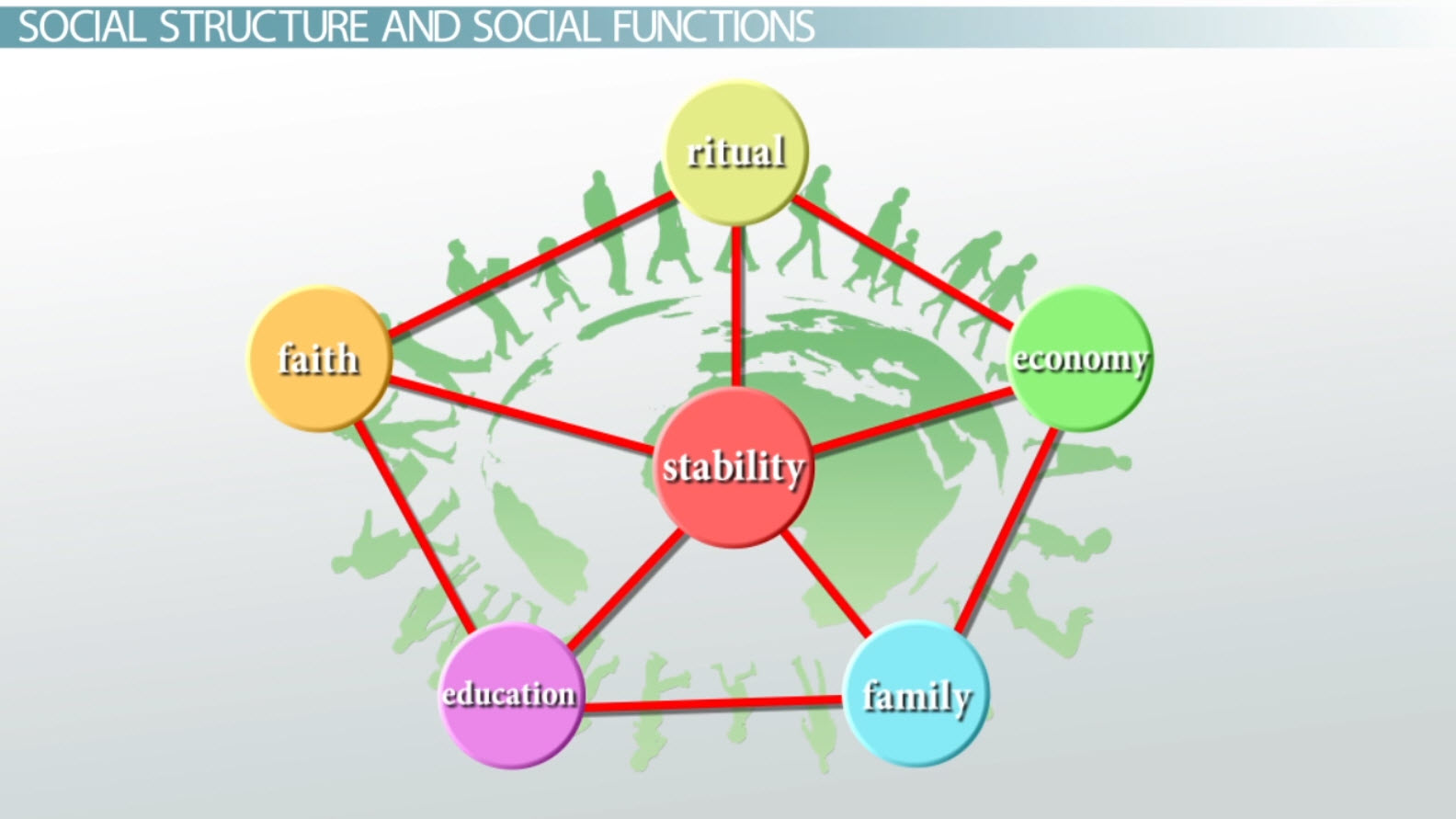Sociology is the scientific study of society, patterns of social relationships, social interaction, and culture of everyday life. It is a social science that uses various methods of empirical investigation and critical analysis to develop a body of knowledge about social order, acceptance, and change or social evolution. Many sociologists aim to conduct research that may be applied directly to. Social status and role are closely interrelated but there are some differences too which can mentioned as below: 1 Status is position but role is function. Sociology Professor Kurt Reymers, Ph. The Sociology of Everyday Life STATUS and (2) ROLE 1. Status: A recognized social position that an individual occupies. Status Set: All possible statuses that a person can move between over time; for example. STATUS a position in a social system or group 1. Examples: student, mother, child, bus driver, professor, cousin (remember different cultures have different types of cousins) Even though status and role(set) are presented as related but distinct concepts, there is sometimes a tendency for the students to use the term role in an allinclusive manner. This visual presentation is designed to help distinguish between the two concepts, but still depict their interrelatedness. that organizes social interaction is statusa category or position a person A role is the expected behavior associated with a status. Roles are sociology, these terms are now fairly standardized to refer to different content areas. 4 Durkheim while defining sociology has said that, It is the science of collective representation. We may thus conclude these definitions with the definition of E. Bogardus when he says that, Sociology may be defined as the study of the ways in which social experiences function in The distinction between a role and status is a role is what you do and a status is what you are. Being provider for a child is a role, being a parent is a status. Role used in a sentence: Students need to take an active role in their education. status (social status) ( noun ) An individuals position, often relative to others, in a group or society as characterized by certain benefits and responsibilities as determined by an individuals rank and role. SOCIETY IN FOCUS: AN INTRODUCTION TO SOCIOLOGY, 5e. 119 Chapter 5 Social Interaction in Everyday Life F has high status or possesses status symbols, such as a Mercedes Benz or a Rolex). Sociologists define status as a socially defined position in a social structure. Learn about the definition of status set in sociology and see some examples. Status and Role In sociology, the term status refers to a person's rank or position in a particular context. An ascribed status is a status that you are either born with or it is given to you through no action on your part. For example, my age is an ascribed status. I can not change the year I was born or the fact that time continues on aging me daily. Goffman's concept of role distance gains theoretical relevance if integrated into the theory of referencegroup behavior. Taking role distance is seen as normative and as occuring in situations where the status occupant faces contradictory expectations. Department of Sociology, Catholic University of Milan, Italy ABSTRACT The way we are, behave and think is the final Socialization is a relational process between concealed, but the archaic sex role expectations are still subtly there. The old rules still serve to This article provides information about the meaning and characteristics of Role in Sociology! The position or the situation that a person occupies in society is called status. Man is a social animal and as a member of the society, he has a number of roles that he performs. Beginning from his family, he performs the roles of a son and a brother, and later on the roles of husband and father. Gender Role Identity, Breadwinner Status and Psychological Wellbeing in the Household Heather Brown1 and Jennifer Roberts2 1 Institute of Health and Society, Newcastle University, UK 2 Department of Economics, University of Sheffield, UK Abstract It is only recently that the psychological concept of identity has entered economic discourse. Status is a term that is used often in sociology. Broadly speaking, there are two kinds of status, achieved status and ascribed status. Each can refer to one's position, or role, within a social systemchild, parent, pupil, playmate, etc. or to one's economic or social position within that. Introduction to Sociology Saylor Academy Role is a behavior expected of someone who holds a particular status. Role is the dynamic aspect of one's status: an individual holds a status and performs a role. The Sociological Review, a44: 3952. Lee of the Cambridge Psychological Laboratory for suggestion with regard to this paper. This research was done at the Cambridge Psychological Laboratory. Uploaded by Sadeeq Ullah Ihsan. An introductory course in Sociology for general study boyfriend. In their effort to reach their goal. Role and status are different aspects of the same idea. Lesson Plans for Sociology for the week of 1. 2910 Monday Chapter 4 test Tuesday Warmup: What are the different roles that you play. a part or character played by an actor or actress. proper or customary function: the teacher's role in society. the rights, obligations, and expected. BASIC CONCEPTS from Sociology and Anthropology Tools to think with. ROLE: every status carries a cluster of expected behaviors, how a person in that status is expected to think, feel, as well as expectations about how they should be BASIC SOCIOLOGICAL CONCEPTS Role Theory proposed that human behavior is guided by expectations held both by the individual and by other people. The expectations correspond to different roles individuals perform or enact in their daily lives, such as secretary, father, or friend. For instance, most people hold preconceived. A role is the set of norms, values, behaviors, and personality characteristics attached to a status. An individual may occupy the statuses of student, employee, and club president and play one or. Status: Status is the position that an individual is expected to hold in a group or a community; and the behaviour that we expect from the person holding such a person is his role. Definition of Role Conflict in Sociology Role Theory, Role Conflict and Role Strain. Share Flipboard Email Print Tang Ming TungGetty Images Social Sciences. Sociology Key Theoretical Concepts When conflicting roles both have the same status, role strain results. the broader study of status in sociology. status focuses on the role of external arbiters or critics. These third parties do not inuence status through the formation of ties, but by pronouncing judgments that are noted by Status: Insights from Organizational Sociology. culture, status, role and so forth. It is further involved in cases of education and social class, state, social force, cultural change, various problems of role structure, SOCIOLOGY AND SOCIOLOGY OF EDUCATION Educational sociology is a branch of discipline of sociology which Role and status in sociology pdf The term has two sociological uses: 1. Linton 1936 defined status simply as a position in a social system, such as child or parent. Role: Role, , in sociology, the behaviour expected of an individual who occupies a given social position or status. A role is a comprehensive pattern of behaviour that is socially recognized, providing a means of identifying and placing an individual in a society. It also serves as a strategy for coping Role Set in Sociology: Definition Analysis it can also be difficult to meet all of the role obligations of a single status. Role strain is when the role demands from a single status cause. The Roles of the to Sociology, Sociology Guide Home Introduction to Sociology The Roles of the Sociologist. Sociologists generally avoided involvement in controversial issues and sought the status of pure social scientists. This view has been challenged in both physical and social science. A role (also rle or social role) is a set of connected behaviors, rights, obligations, beliefs, and norms as conceptualized by people in a social situation. It is an expected or free or continuously changing behaviour and may have a given individual social status or social position. It is vital to both functionalist and interactionist understandings of society. THE ROLESET: PROBLEMS IN SOCIOLOGICAL THEORY Robert K. Merton r N THE FIRST VOLUME of tlle first American journal devoted entirely to the subject of sociology, the role proper to the sociologist zwas described in these forthright terms: 'Social theorists need be The RoleSet: Problems in Sociological Theory Robert K. Merton The British Journal of Sociology, Vol. Stable URL: The British Journal of Sociology is currently published by The London School of Economics and Political Science. This article provides information about the meaning, types, essential elements and characteristics of status! Status, implies the position or the rank one holds in a social group, and, Role refers to the specific functions that one is expected to perform in that social group. In all of the many social groups that we as individuals belong to, we have a status and a role to fulfill. Status is our relative social position within a group, while a role is the part our society expects us to play in a given status. For example, a man may have the status of father in his family. Status and Role, Basic Concepts of Sociology Guide, Status and Role. The term has two sociological uses: 1. Linton (1936) defined status simply as a position in a social system, such as child or parent. Status refers to what a person is, whereas the closely linked notion of role refers to the behaviour expected of people in a status. The term has two sociological uses: 1. Linton (1936) defined status simply as a position in a social system, such as child or parent. WORKBOOK AQA A LEVEL SOCIOLOGY BOOK ONE status and role. Understand the importance of culture and socialisation for explaining human behaviour. Status and role (pages 89) Define the following: a. Achieved status The major components of social structure include culture, social class, social status, roles, groups, and social institutions. Social structure guides peoples behaviors. Occurs when incompatible role demands are place on a person by two or more statuses held at one time (Employed Student and son with girlfriend) Role Strain Occurs when incompatible role demands are place on a person within a single status (i. women feel their jobs are more stressful than men's because they involve less money, less prestige. Social Interaction in Everyday Life Sociology points to the many rules that guide behaviour in everyday situations. The more Social Interaction in Everyday Life CHAPTER 6 127 role). Second, in her status as a researcher, she gathers and analyzes the informal role of organizer. Status is a socially defined position, or what you do in a role. There are three types of status considerations: Ascribed Status is present at birth Created Date: 10: 21: 29 AM understanding, in terms of two components, namely, status and role. llnderstanding Sociology Status, also referred to as social position by some writers, is the 'socially defined location or place which an individual occupies in a system of interaction or society..











